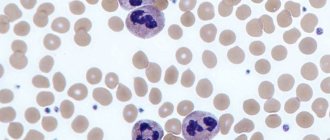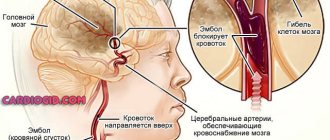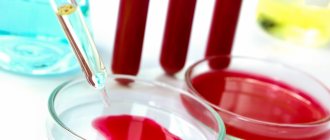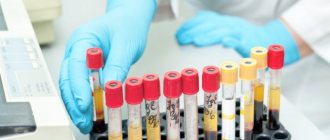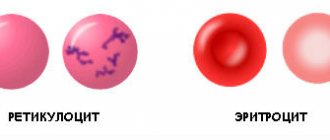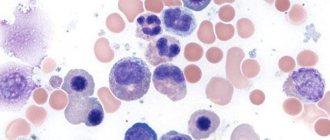What causes a decrease in creatinine levels, and what can be done to keep their levels within normal range?
When the body uses the amino acid creatine for energy, creatinine remains as waste. Creatinine levels in the blood or urine can be checked if there is concern about liver or muscle disease.
Most often, low creatinine levels are a sign of age-related muscle loss, or it is a temporary condition during pregnancy, illness, or malnutrition. Low creatinine levels in older people or people with low body weight should not be a serious cause for concern.
Analysis result
| Age | Floor | Reference values (in µmol/l) |
| Less than a month | 21-75 | |
| Up to a year | 15-37 | |
| 1-3 years | 21-36 | |
| 3-5 years | 27-42 | |
| 5-7 years | 28-52 | |
| 7-9 years | 35-53 | |
| 9-11 years | 34-65 | |
| 11-13 years old | 46-70 | |
| 13-15 years old | 50-77 | |
| Over 15 years old | Male (15-49 years old) | 74-110 |
| Male (50-99 years old) | 72-127 | |
| Female | 58-96 |
The indicator may increase with the following diseases and pathological conditions:
- Kidney failure
- Glomerulonephritis
- Urinary tract obstruction
- Pyelonephritis
- Prostate disorders
- Acute tubular necrosis
- Massive destruction of muscle tissue
- Myocardial infarction and other disorders of the cardiovascular system
- Hyperthyroidism
- Radiation sickness
- Dehydration
- Burns with massive tissue necrosis
- Acromegaly
- Gigantism
Also, the cause of an increase in creatinine levels may be the use of nephrotoxic drugs, a decrease in blood flow in the kidneys due to dehydration, complications of diabetes, atherosclerosis and other dangerous conditions, as well as excessive consumption of meat and intense physical activity.
Creatinine levels decrease when:
- Muscle atrophy
- Overhydration
- Fasting
What is creatinine?
Creatine
is an amino acid produced naturally in the body and obtained in small quantities from food. Creatine has gained popularity as a dietary supplement following evidence that it can increase body weight, improve physical endurance and speed recovery. When creatine is broken down, it is used for energy and creatinine remains as waste products. Creatinine levels vary depending on factors such as height, age, or gender, so there is no standard value.
MEDSI cares about its patients
- Experienced specialists.
They professionally conduct research on biological material, which guarantees diagnostic accuracy - Comfortable conditions for taking the analysis.
You can take the test throughout the day. The results will be available in your personal account - Modern laboratory equipment.
It corresponds to a high European and global level. The laboratory uses equipment from leading manufacturers such as Beckman Coulter, Siemens, Ortho Clinical Diagnostics, Thermo Fisher, Sysmex, BD. All areas of testing and evaluation of biomaterials are equipped with the latest equipment that allows for high-level/high-precision diagnostics - Regular maintenance of equipment and automation of research processes.
All analytical installations are serviced and meet quality standards. All processes are automated as much as possible and built in accordance with LEAN management. This allows the laboratory to control processes, minimize time and errors during analysis - Automation of the process of sorting biomaterials.
Preliminary identification of the biomaterial is carried out in front of the patient. Eliminates the possibility of losing the test tube - The shortest processing time for materials.
They are provided with modern equipment and experienced specialists - There is an opportunity to undergo a comprehensive examination.
This ensures a quick and accurate diagnosis
To make an appointment with a doctor and clarify the conditions for taking the test (including its cost), call +7 (495) 7-800-500. Our specialist will answer your questions and suggest the optimal time to visit the clinic. Recording is also possible through the SmartMed application.
What does a low creatinine level mean?
Low creatinine levels may indicate a problem with the muscles or liver, but can be caused by something less serious, such as loss of muscle mass in older people, or pregnancy.
Creatinine is always present in the bloodstream, from where it is removed by the kidneys and excreted from the body in urine. Research shows that creatinine helps fight disease and stops the growth of bacteria. A laboratory test used by doctors shows how well the kidneys remove creatinine from the body.
There are four main causes of low creatinine:
- low muscle mass;
- liver diseases;
- diet;
- pregnancy.
Low muscle mass
Creatinine levels are often related to muscle mass, which can decrease with age or illness. A low level may indicate that muscle mass is reduced, such as in muscular dystrophy. Older people often lose muscle mass as they age, and this is not usually a serious medical problem.
Liver problems
Creatine is produced by the liver, and an unhealthy liver will not be able to produce normal amounts of creatine. Chronic liver disease can cause a 50% reduction in creatine production. This means there will be a low level of creatinine in the blood, which can be checked by a blood test.
Diet
Although creatine is produced naturally, small amounts come from food, so diet may influence low creatinine levels. Creatine is primarily found in meat, so people who follow a vegetarian or low-protein diet tend to have low creatinine levels.
Pregnancy
Pregnancy often causes low creatinine levels, which will return to normal after childbirth.
Complexes with this research
Women's check-up No. 1 38 studies for annual preventive examination 19,290 ₽ Composition
Blood biochemistry. 8 indicators Minimum biochemical blood test 990 ₽ Composition
Female infertility Analysis of women's reproductive health 16,210 RUR Composition
IN OTHER COMPLEXES
- Expanded hospital complex RUB 7,700
- Check-up No. 1 for children and teenagers RUB 10,950
- Biochemistry of blood. 13 indicators 3,490 ₽
- Preventative check-up RUB 11,960
- Nutritionist recommends RUB 7,570
Symptoms of low creatinine levels
Symptoms of low creatinine depend on the underlying condition, but may include:
- With low muscle mass
- weakness, difficulty performing physical exercises; - With liver disease
- weakness, pain in the upper right corner of the abdomen, nausea; - When dieting
- weakness or dizziness, weight loss.
In most cases, symptoms do not indicate low creatinine levels, but may indicate other health problems.
References
- Clinical protocol for diagnosis and treatment of acute renal failure, 2014. - 24 p.
- Kucher, A.G., Kayukov, I.G., Yesayan, A.M. and others. The influence of the quantity and quality of protein in the diet on kidney activity. Nephrology, 2004. - Vol. 8(2). — P. 14‐34.
- KDIGO practice guidelines for the diagnosis, prevention and treatment of mineral and bone disorders in chronic kidney disease (CKD-MBD). Summary of recommendations. Nephrology, 2011. - T. 15(1). — P. 88‐95
- Nephrology. National leadership / ed. ON THE. Mukhina. - M.: GEOTAR-Media, 2009. - 720 p.
Treatment
Low creatinine levels can indicate a variety of medical conditions, so your doctor will use the test results to determine underlying problems. If low creatinine levels, along with other symptoms, indicate liver disease, treatment most likely begins with medications and lifestyle changes. These changes may include eating healthier and avoiding alcohol.
If a person has a muscle disorder, treatment may include exercise therapy, medications, or surgery.
Need for research
As a rule, many people don’t even think about how many different types of examination there really are for accurate diagnosis. In most cases, no one voluntarily goes to the laboratory to get tested for creatinine. More often this happens when there are some complaints or visible symptoms of the disease . There are now three most common reasons why a doctor will refer a patient for a blood test to measure plasma creatinine:
- for a renal examination of a patient with certain renal impairments;
- to establish the exact amount of toxic drug excreted through the kidneys;
- with a complete medical examination of the donor, since creatine can also affect other indicators.
How to increase creatinine levels?
Exercising to increase muscle mass and increasing creatine intake in the diet can help people, especially those on a vegetarian diet.
For people who perform high-intensity exercise, creatine as a dietary supplement is considered safe.
Low creatinine levels may indicate underlying health problems such as liver disease. Most often, low creatinine levels are a normal part of aging or a temporary problem that can be resolved by changes in diet.
Why does creatinine level increase in a healthy person?
The reasons for the increased creatinine level should first be sought in human physiology. Nowadays, many people engage in strength sports. This is especially true for bodybuilding. Athletes enhance this process by taking anabolic hormonal drugs. Building muscle requires a significant amount of protein in the diet. Accordingly, a blood test in such cases shows an increase in decay products.
Such muscles require sacrifice
To create a slim figure, girls use advertised diets with a sharp limitation of fats and carbohydrates by increasing the proportion of protein products and vitamins.
An even more severe one - a starvation diet - causes an increased extraction of energy from protein, and not from carbohydrates, as is usually the case. In this case, the metabolic balance is disrupted: a low level of glucose is observed in the blood, but the residual nitrogen of creatinine and urea is increased.
Value Normalization Methods
The choice of therapeutic measures will depend on the factor that caused the decrease in enzyme concentration. In most cases, the main solution to the problem is to increase muscle mass.
Drug therapy
If the cause of the development of the pathology is any disease, then, based on diagnostic studies, the specialist will prescribe appropriate treatment with drugs. Only after the underlying disease is eliminated, the creatinine level will gradually return to normal.
Diet
In the absence of pathologies, first of all it is necessary to reconsider the diet. However, it should be borne in mind that the diet is not associated with the treatment of any serious disease (gout, pancreatitis, etc.).
It is recommended to include more high-protein foods in your daily menu.
Be sure to include in your diet foods such as:
- river and sea fish;
- meat products;
- nuts;
- seafood.
In some situations, when it is necessary to increase the enzyme level in a short time, the attending physician may advise taking special vitamin complexes, which in this case contain all the necessary microelements and substances.
ethnoscience
To normalize these indicators, patients often turn to folk remedies that help increase the level of creatinine in the blood fluid. It should be remembered that such treatment is possible only after consultation with a doctor.
Satisfying content
The normal creatinine level is different for everyone. Therefore, the same transcript does not suit everyone equally. In this case, there is a certain norm for men and women, as well as children and newborns. Norm for men:
- up to 50 years – from 74 to 110 µmol/liter;
- over 50 years - from 70 to 127 µmol/liter.
The norm for women is from 60 to 100 µmol/liter. Norm for children:
- in newborns, creatine is from 27 to 88 µmol/liter;
- up to one year the norm is from 18 to 35 µmol/liter;
- over a year from 27 to 63 µmol/liter.
Links[edit | edit code]
- Mayhew, D. L., Mayhew, J. L., & Ware, J. S. (2002). Effects of long-term creatine supplementation on liver and kidney functions in American college football players. International Journal of Sport Nutrition and Exercise Metabolism, 12, 453-460
- Schedel, J. M., H. Tanaka, A. Kiyonaga, M. Shindo, Y. Schutz
- Burke, D. G.; Candow, D. G.; Chilibeck, P. D.; MacNeil, L. G.; Roy, B. D.; Tarnopolsky, MA; Ziegenfuss, T (2008). "Effect of creatine supplementation and resistance-exercise training on muscle insulin-like growth factor in young adults." International journal of sport nutrition and exercise metabolism 18 (4): 389–98.
- Chen, J.; Wang, M.; Kong, Y.; Ma, H.; Zou, S. (2011). "Comparison of the novel compounds creatine and pyruvateon lipid and protein metabolism in broiler chickens." Animal 5(7):1082–9.
- Clin J Sport Med. 2009. Three weeks of creatine monohydrate supplementation affects dihydrotestosterone to testosterone ratio in college-aged rugby players. van der Merwe J1, Brooks NE, Myburgh KH.
Prevention
Preventive actions to prevent elevated creatinine levels are aimed at combating many diseases.
It is recommended to adhere to the following actions:
- Get rid of excess weight and obesity (if any),
- Normalize the state of the nervous system,
- Maintain a daily routine and a balance between work and proper sleep,
- Track blood pressure levels,
- Eat properly,
- Lead a more active and healthy lifestyle,
- Stop smoking and drinking alcohol.
The list of recommendations is not complicated, but will help to significantly reduce the risks of creatinine imbalance.
Decrease in indicator
The creatinine test may also be lowered, and there are reasons for this. Sometimes such causes can be determined without additional examination, since the symptoms are visible on the face. And so, creatine can decrease due to:
- prolonged fasting, which sharply led to a decrease in body weight;
- vegetarian food;
- the use of corticosteroids reduces creatinine;
- presence of hyperhydria;
- carrying a child, especially in the first two trimesters;
- dystrophic changes in muscle tissue.
The interpretation of the resulting creatinine analysis will give exactly the same reasons that creatine is significantly reduced and the norm is absent. In this case, the norm can be achieved only if there is appropriate nutrition and all necessary doctor’s recommendations are followed.
Laboratory diagnostic methods
To identify the real level of creatinine in the body, various laboratory diagnostic methods are used, which help to make a correct assessment of the functional characteristics of many organs and systems, to determine the nature of changes in the general condition of the human body using capillary or venous blood.
This:
- Comprehensive diagnostics biochemistry .
- Hemorenal tests (Rehberg-Tareev) - determination of the level of endogenous substances according to GFR.
- Azotemia is the standard for early diagnosis of renal pathologies (protein/creatinine ratio).
To eliminate errors in laboratory test readings, two days before the examination you should avoid strength training.
24 hours before donating blood, exclude protein and meat foods, especially beef, from your diet. Drinking plenty of fluids is helpful, but on the eve of blood sampling you should not drink strong tea or coffee.
Based on the results of each of these tests, one can judge the patient's health status.
Increase in indicator
Taking a blood test for creatinine is not a tricky thing, the main thing is to have the correct interpretation to diagnose possible problems. Most often, patients complain of increased levels, which may be caused by:
- renal failure;
- for various pathologies such as acromegaly or gigantism;
- long-term use of certain medications that contain toxins. For example, these are barbiturates, antibiotics, sulfonamides and others;
- long-term compression syndrome, which is also called crash syndrome;
- lack of fluid in the body - dehydration;
- thyrotoxicosis increases creatinine;
- radiation sickness.
It is precisely such diseases that may cause the need to take a blood test for creatinine and determine its exact content in plasma. Also, quite often, a blood test may show a false increase, which causes an increase in the concentration of metabolites in the blood. This may also occur due to the use of certain medications, in particular those containing large amounts of vitamin C, cephalosporin, levodopa and ibuprofen.
How to reduce creatinine in the blood
Before you lower your creatinine, you need to undergo an examination. The doctor develops a therapeutic scheme to solve the problem.
If creatinine in the blood exceeds, medications that normalize protein breakdown may be prescribed. In case of insignificant excesses of the norm, it is often enough to adjust the usual way of life.
To return normal creatinine levels in the blood, you can use the following recommendations:
- Introduce herbal teas into your diet:
- develop the habit of drinking two large cups daily;
- carefully try the effect of tea made from nettle and dandelion leaves. Herbal infusions help improve kidney function and increase urine excretion.
- Doctors, representatives of alternative methods of therapy, recommend using nettle tablets according to the instructions, or again taking the potion in the form of tea.
- It is worth paying attention to the healing plant - sage.
Before starting therapeutic actions, it is necessary to consult with a leading specialist.
Sage is a medicinal mixture that increases the rate of glomerular filtration and the removal of creatinine. Also, thanks to lithospermate B included in the structure of the plant, kidney function improves.
- It is necessary to monitor your water balance. Experts recommend drinking up to two liters of water daily because:
- if there is a deficiency, the amount of urine excreted decreases, creatinine is not excreted completely;
- with excess water, you can provoke edema and hypertension, increasing the load on the kidneys;
- It is important to determine your golden mean in order to maintain body functions at the appropriate level.
- Sport is undoubtedly important, but moderation is also important in this matter. If the indicators are elevated, you should not give up physical activity, you should simply reconsider them.
- To fully filter the substance in the kidneys, you should devote enough time to sleep. Night rest should last 7 - 8 hours.
The cause of increased createnine in the blood is drugs that have an aggressive effect on kidney function. For example, constant use of Ibuprofen may well provoke kidney failure. Sometimes ACE inhibitors used for therapeutic purposes simultaneously exceed the normal level of creatinine in the body. All possible dietary supplements and drugs, if the test results are elevated, should be reviewed with a doctor, discontinued or replaced with other drugs with a similar effect.
Creatinine increases in diabetes, and to prevent further kidney damage, doctors prescribe Repaglinide. You should also monitor your blood pressure with Hydrochlorothiazide and Benazipril. If treatment with antibiotics is necessary, it must be taken into account that in case of kidney disease, the dosage should be reduced.
To reduce values, doctors prescribe:
- "Ketosteril";
- alpha lipoic acid supplements;
- chitosan.
Physiotherapeutic procedures may also be prescribed at the discretion of the doctor:
- cold or low-wave laser;
- massage;
- medicinal baths;
- hemodialysis.
After consulting your doctor, you can diversify the treatment regimen with traditional methods of treatment.
